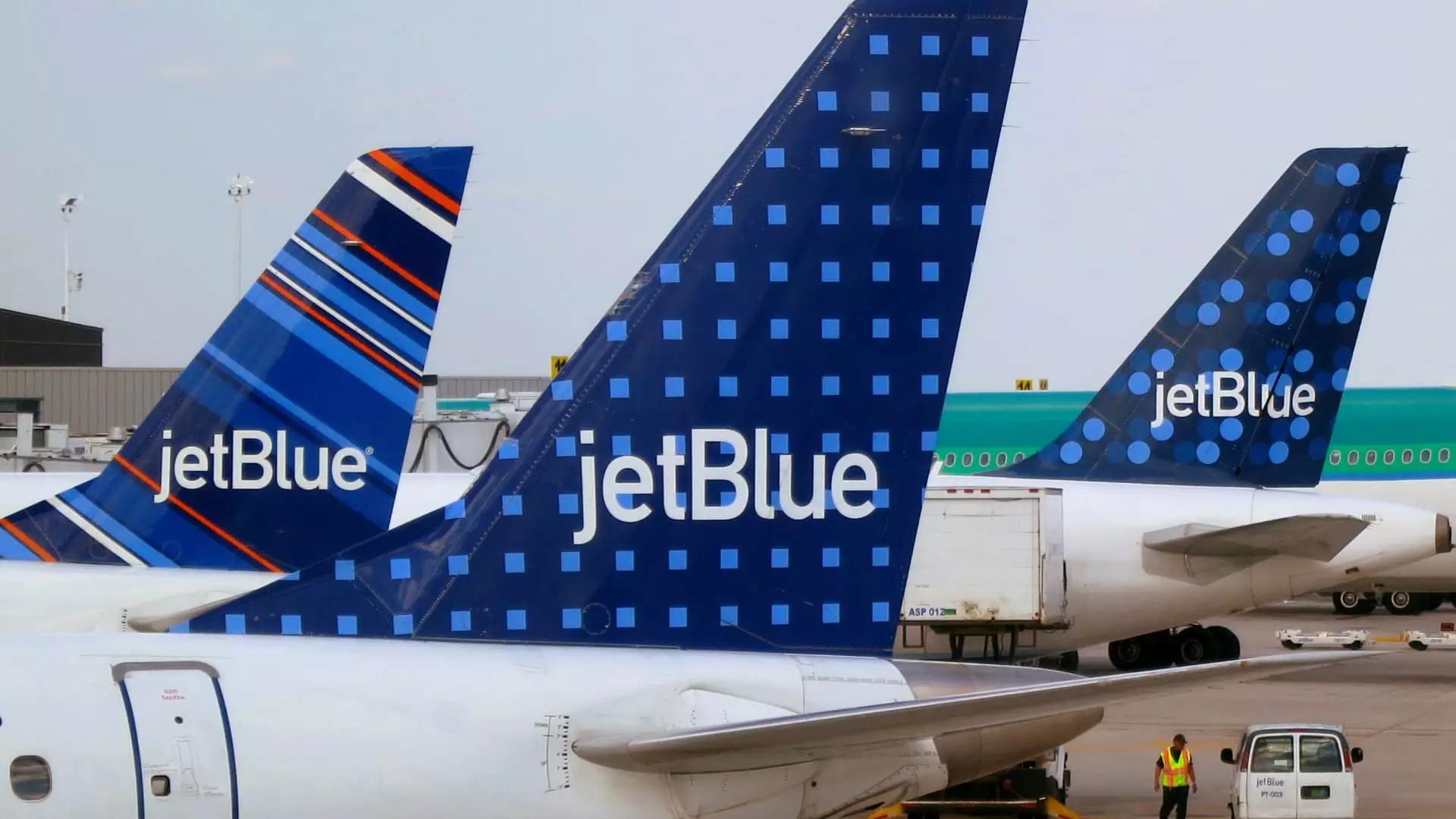Air travel is an integral part of modern society, connecting people across long distances and facilitating commerce. However, the experience of flying is often marred by delays and cancellations, leading to passenger frustration and mistrust in airlines. The recent decision by the U.S. Department of Transportation (DOT) to fine JetBlue Airways $2 million for chronically delayed flights marks a crucial step in holding airlines accountable for their operational reliability. This landmark ruling emphasizes the importance of realistic scheduling and better management of resources within the airline industry.
The $2 million penalty issued to JetBlue is unprecedented and signals that the DOT is prepared to take firm action against airlines that consistently fail to meet scheduled arrival times. The investigation identified that JetBlue operated four specific routes suffering from at least 145 delays between June 2022 and November 2023. These routes include high-traffic corridors, namely between New York’s John F. Kennedy International Airport (JFK) and Raleigh-Durham International Airport, as well as several connections within Florida. According to the DOT, more than 70% of disruptions on these routes were attributable to JetBlue, highlighting a systemic issue rather than isolated incidents.
The criteria determining a flight as “chronically delayed” involves a rigorous analysis of the frequency of late arrivals. A flight must occur at least ten times a month and arrive over 30 minutes late on more than half those occasions to qualify as chronically delayed. The significance of this classification cannot be overstated as it underscores the need for the airline to take corrective measures and operate within a realistic scheduling framework.
Transportation Secretary Pete Buttigieg has stated that this ruling sends a clear message to the entire airline industry: schedules must match operational realities. This assertion speaks to a larger issue within the air travel sector— the accountability that both airlines and government bodies share in ensuring safe and timely travel. In response to the fines, JetBlue has pushed back, arguing that the responsibility for delays doesn’t rest solely with the airline. Instead, management of air traffic control (ATC) systems, which has been criticized for being outdated and understaffed, plays a critical role in the operational efficiency of flights.
Highlighting this shared responsibility, JetBlue, alongside other major carriers like Delta and United Airlines, has been vocal in advocating for increased staffing of air traffic controllers and modernization of ATC technology. They argue that such improvements are essential to curbing delays that plague air travelers year-round. This perspective suggests that while airlines must be held accountable for reliability, government agencies must also step up their efforts to provide robust infrastructure supporting the airline industry.
For passengers, the ramifications of JetBlue’s chronic delays extend beyond the inconvenience of waiting at the airport. Delays can lead to missed connections, disrupted travel plans, and significant stress. The fine imposed on JetBlue will partly fund compensation for passengers affected by those delays, demonstrating a willingness to make amends for operational failures.
Based on DOT reports, JetBlue has made improvements in its on-time performance, ranking ninth among ten major U.S. airlines from January to September of 2024, reflecting a better on-time arrival rate than the previous year. However, the substantial fine and the directives from the DOT highlight the pressure on JetBlue and other airlines to bolster their performance further.
The ruling against JetBlue sets a precedent for accountability that may lead to broader changes in how airlines operate. If other carriers face similar scrutiny, it could mark the beginning of a new, stringent era where airlines are compelled to prioritize punctuality and passenger satisfaction. As the air travel landscape continues to evolve, both airlines and government agencies must collaborate to create a more efficient and reliable system. Ultimately, the goal should always be to enhance the passenger experience and ensure that air travel remains a viable option for all. This fine represents more than just a monetary penalty; it signifies a potential turning point in the relationship between airlines, government regulators, and air travelers alike.

